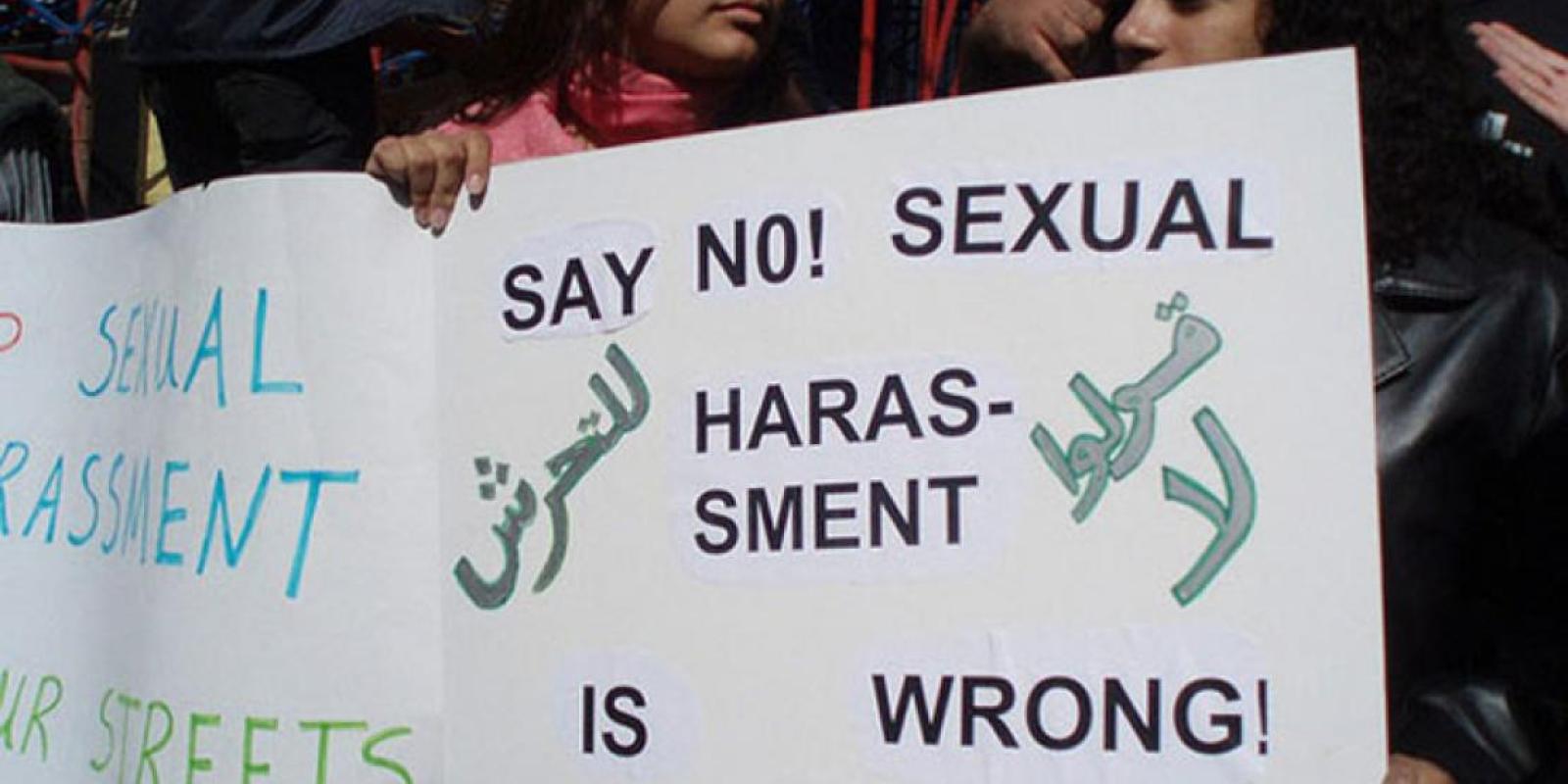
Faculty Research Tackles Root Causes, Ways to Combat Harassment
Recent events regarding sexual harassment in Egypt have encouraged people to come forward with their own stories and demand that sexual predators be held responsible for their actions. At AUC, faculty members have long been researching sexual harassment in the country and greater region, aiming to understand its prevalence and how to address it.
Helen Rizzo, associate professor of sociology, has been doing work in this area since 2006. The current events we are experiencing are nothing new, she said, citing incidents in Egypt over the past 15 years that have sparked outrage and started anti-harassment movements.
“I think the large number of accusers and severity of the accusations have made this recent case the latest focusing incident that has been able to mobilize a new generation of activists, along with seasoned activists and organizations such as the National Council for Women, who are working to bring justice to the survivors,” she said.
Rizzo’s most recent research focuses on activism against public space harassment and is titled “Redefining Masculinities in the Middle East: The Struggle of Anti-Gender-Based Violence Initiatives in Egypt.” Her work looks at how longer-standing NGOs and independent initiatives that were formed around the January 25, 2011 uprising address men and masculinities. Through observations and about 30 in-depth interviews, she was able to point out certain characteristics of men who are involved in these movements.
“Some of the male activists in my research had people close to them who had suffered from harassment, or they themselves were survivors of sexual violence or familial abuse, or were bullied at school or in public spaces for not being ‘manly’ enough,” she said. “They were non-conformers, which can be the key to understanding why these young men wanted to be involved in this type of activism, especially with feminist groups.”
AUC’s Social Research Center has also been home to several research projects related to sexual harassment issues. According to Hania Sholkamy, associate professor at the SRC, the center has worked on masculinity in Egypt and pointed to the problems of masculine frustration and confusion, which enable sexual transgressions against women.
“Harassment is not a women's issue,” Sholkamy said. “It is a male pathology. Our work on gender at the SRC deals with the core issues that lead to sexual violence and inequality. Sexual harassment is a symptom of structural problems in social, physical and political spheres.”
Sholkamy herself has worked on projects looking at how gender issues as systemic injustices can lead to outcomes such as sexual harassment. “My work has dealt with the social construction of sexuality and the sexual construction of sociality in connection to women's empowerment, reproductive health, early marriage, Female Genital Mutilation and women's work,” said Sholkahmy, who is now starting a new project that deals with women working in informal settings and will look at sexual and physical dangers and restrictions that impact women's economic agency.
And with the research that is being conducted, both faculty members believe in the impact of the work they do.
“The problem of sexual harassment and other forms of sexual and gender-based violence will not be resolved until all levels of society start to problemetize and redefine masculinities,” Rizzo said. “Some of the male activists along with their female feminist colleagues in my research are doing this important work.”
As for Sholkamy and the SRC, it is the nuanced approach that tackles the root causes of these issues that will help inspire change. “Our work can enable a comprehensive and multi-layered approach to these crimes that does not halt at stopping the symptoms, but addresses the causes,” Sholkamy said.
The SRC also keeps track of sexual injustices and inequalities as they are constantly changing and are reinvented. “The SRC illustrates and explains how these acts mutate and remain,” she said.
But in addition to the research and potential impact, change must also start by taking action, according to Rizzo.
For her, the first step is for all workplaces and educational institutions to have clear anti-harassment and non-discrimination policies. Emphasizing clarity, she said that the most important thing is for these policies to be communicated effectively and in a straightforward manner to everyone who is connected to an organization.
“Who investigates the complaint, and how will the investigation be conducted? What are the limits of confidentiality for the complainant and the accused? What are the sanctions if the accused is found guilty by the investigation?” she said.
Rizzo also expressed the importance of training those who are meant to enforce these policies and procedures to implement the rules fairly and impartially. “If all this is in place, then hopefully individuals will be more willing to come forward when they witness or experience sexual harassment,” she said.
#AUCSpeakUp
